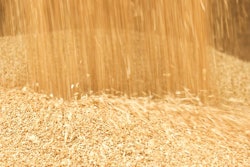
Find out what you missed in feed news and blogs from last month
See what topics were the most popular in the animal feed industry in July.
By the end of this year, there will be 2.5 million fewer hogs slaughtered than there should have been due to the novel coronavirus (COVID-19) pandemic, and the National Pork Producers Council (NPPC) says hog producers need more financial help to weather the storm.
The novel coronavirus (COVID-19) pandemic has caused changes all along the food supply chain, from the feed mill to poultry production and consumption.
Feed additive supplier Novus International Inc. filed anti-dumping petitions with the U.S. Department of Commerce and International Trade Commission on Wednesday, July 29.
Rabobank has revised down its 2020 pork production forecast for major producing countries as a result of the uncertainties created by the novel coronavirus (COVID-19) pandemic.
Ioannis Mavromichalis: In young broilers, it is important to establish a healthy microbiota as soon as possible.
The main problem that meat processing plants saw early on in the novel coronavirus (COVID-19) pandemic was one of capacity rather than size, according to one expert.
FarmInsect co-founder Wolfgang Westemeier doesn’t want to sell farmers insect meal. He wants to see farmers around the world do what they do best, and start raising insects of their own.
Researchers at Kansas State University have studied various diets aimed at slowing pig growth and found that limiting amino acid intake is successful at extending time to market.
Between mid-February and the second week of June, 20 African swine fever (ASF) outbreaks were confirmed on the island of Luzon in the Philippines.
Jackie Roembke: New K-State research highlights importance of biosecurity in and around the feed mill to prevent the spread of pathogens.















